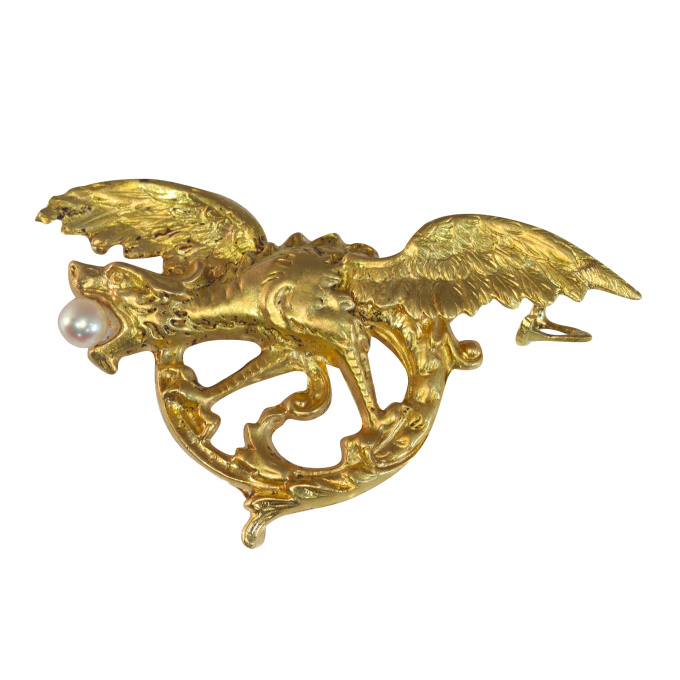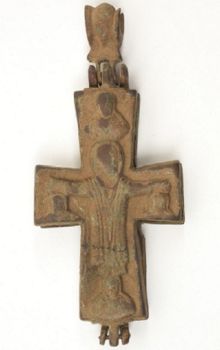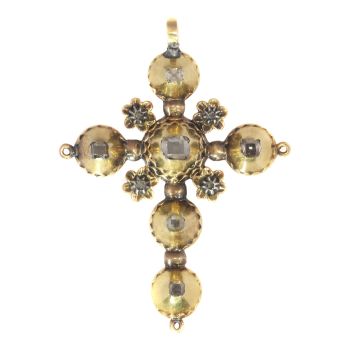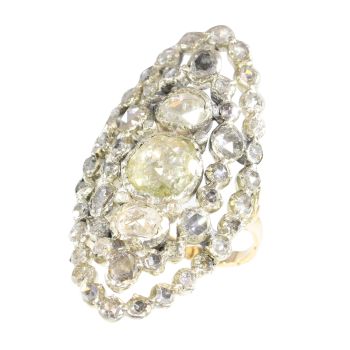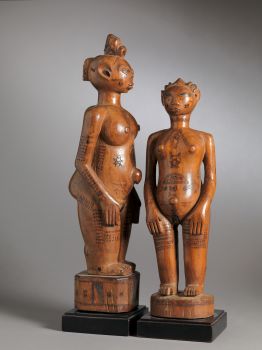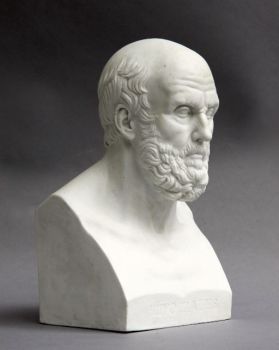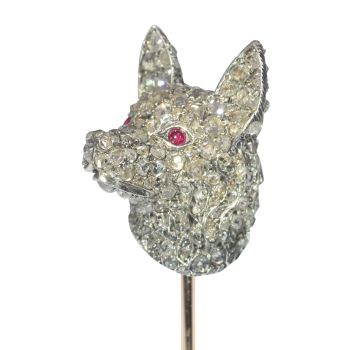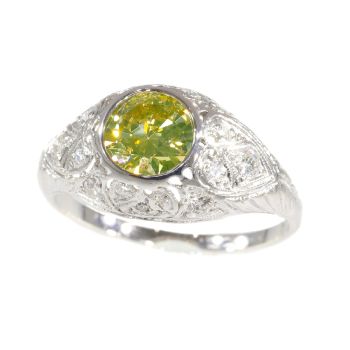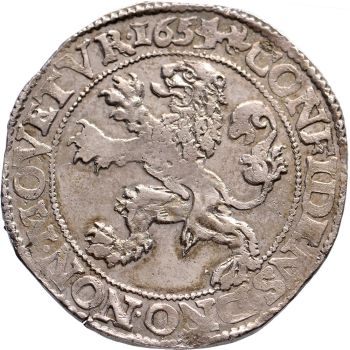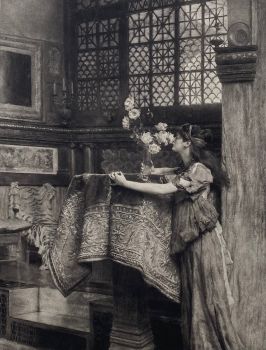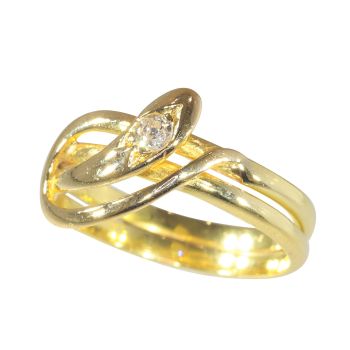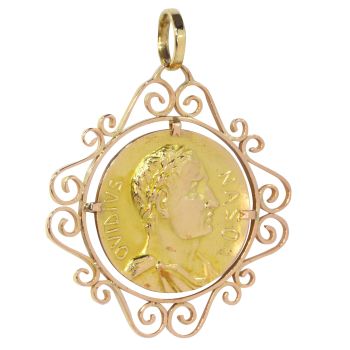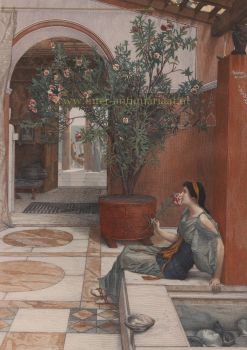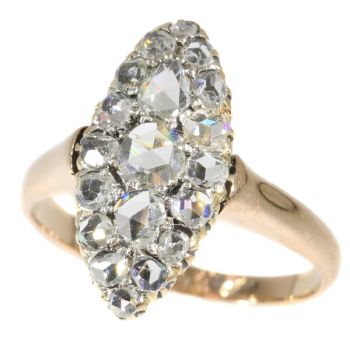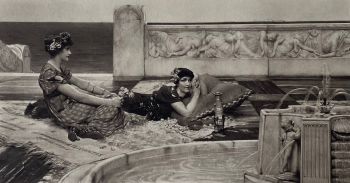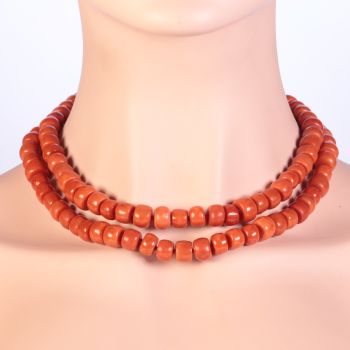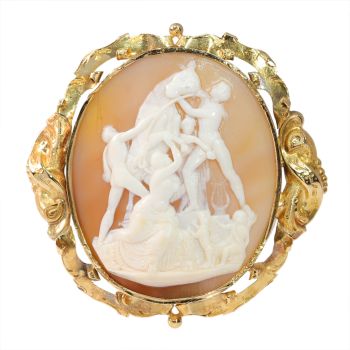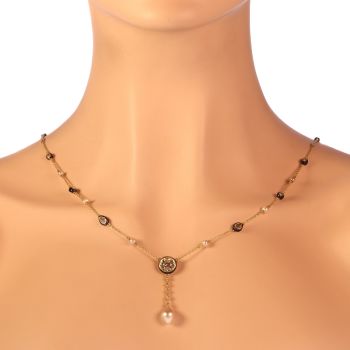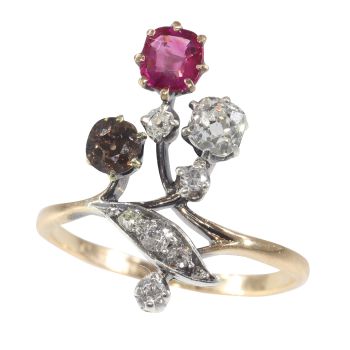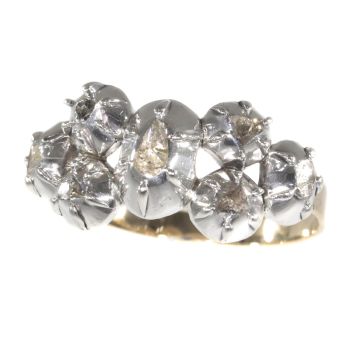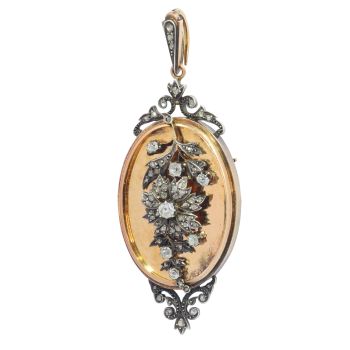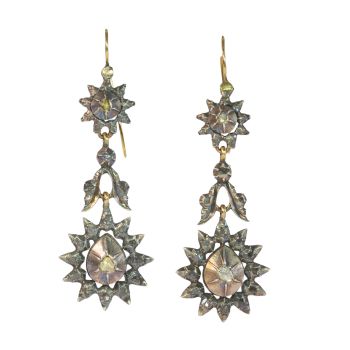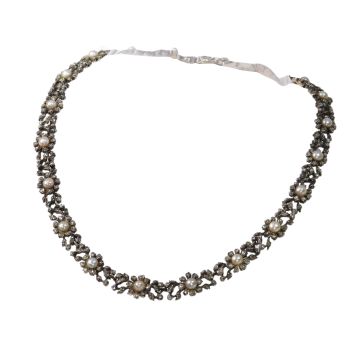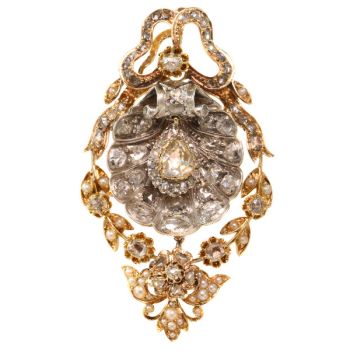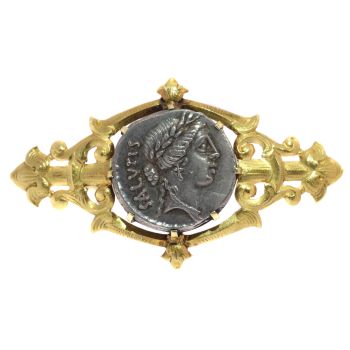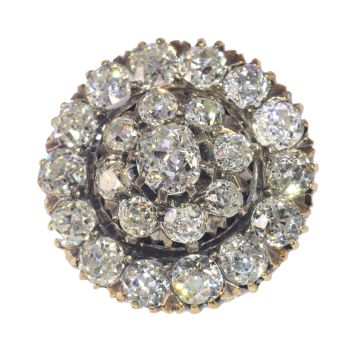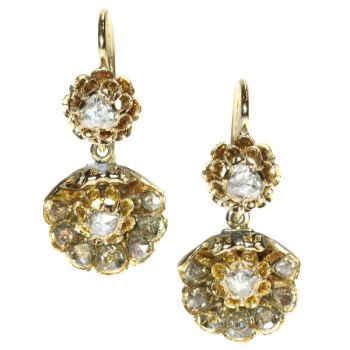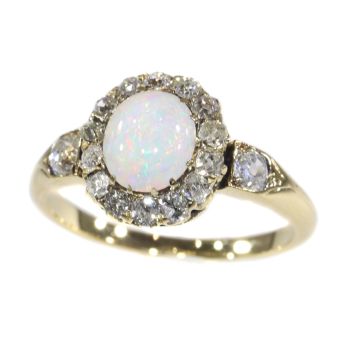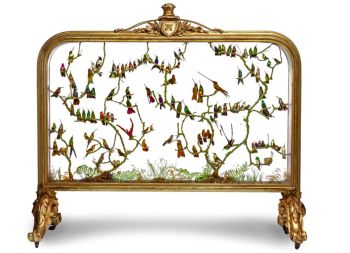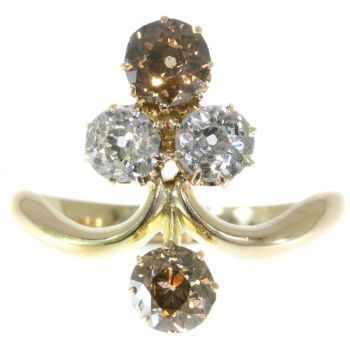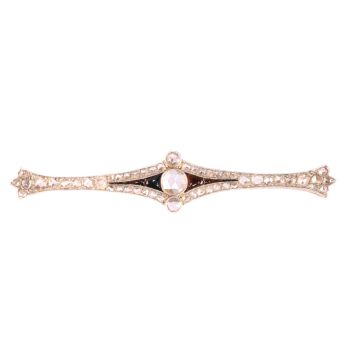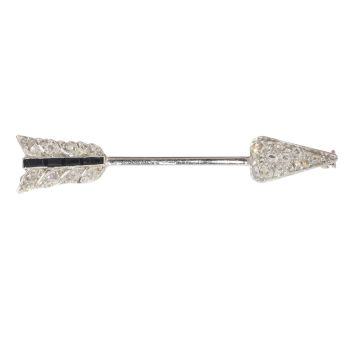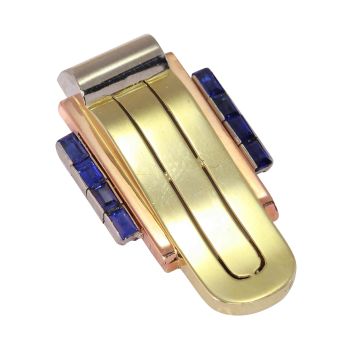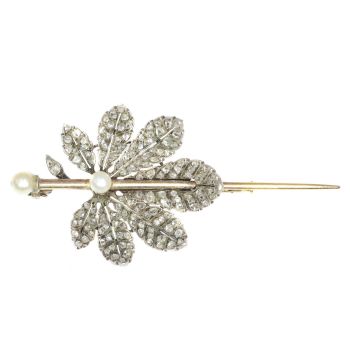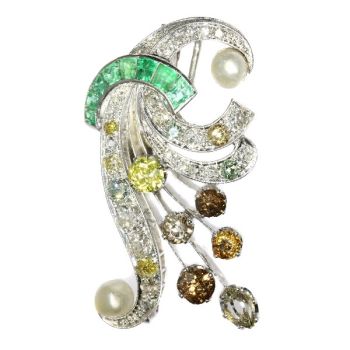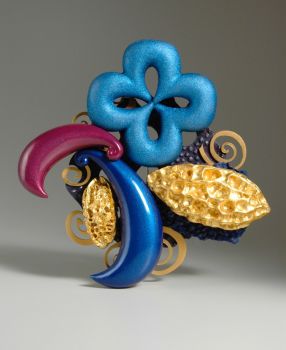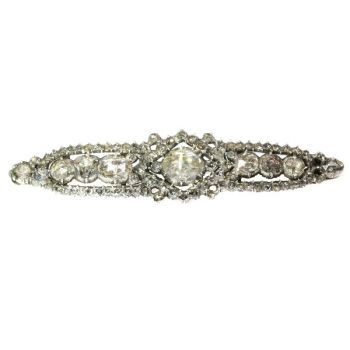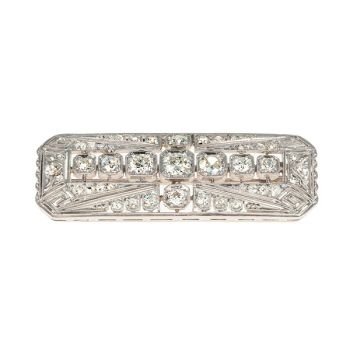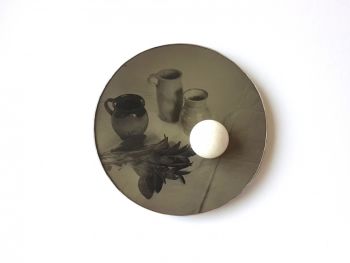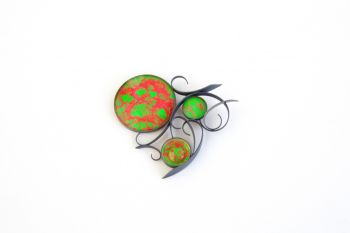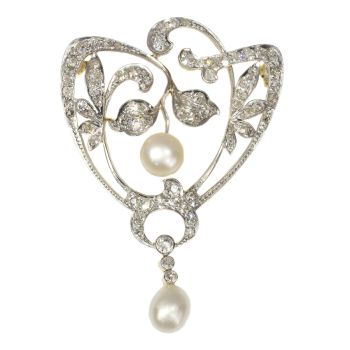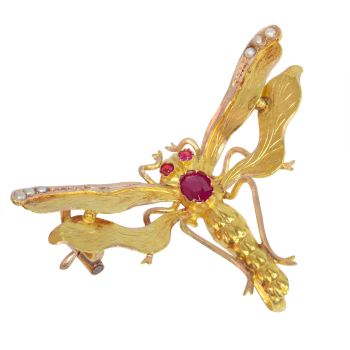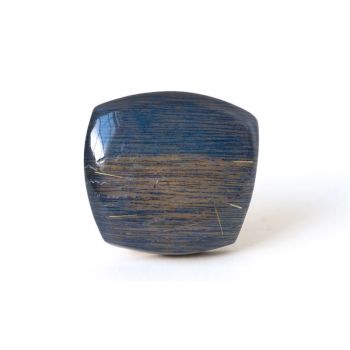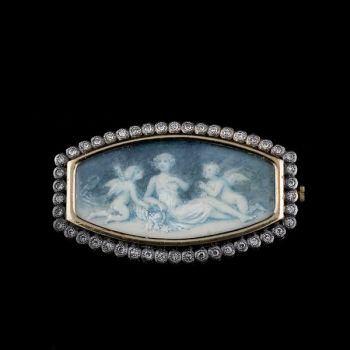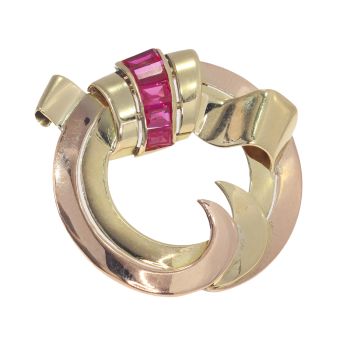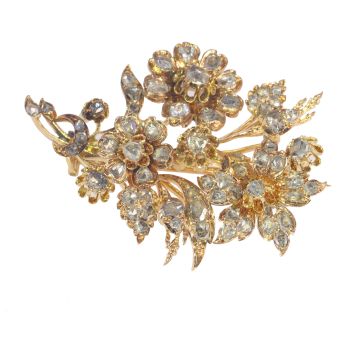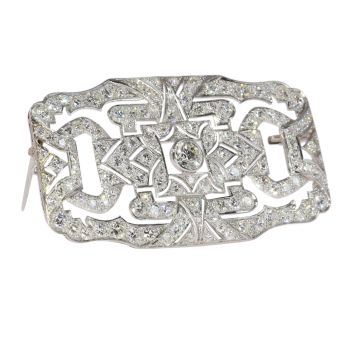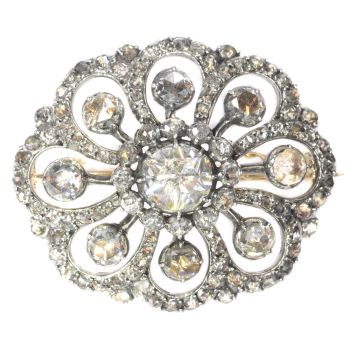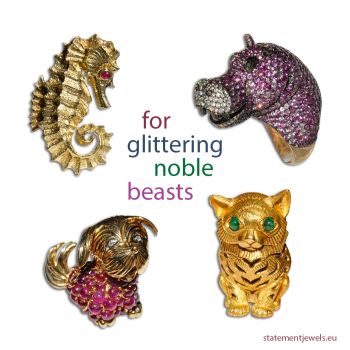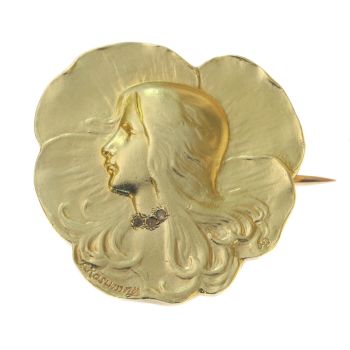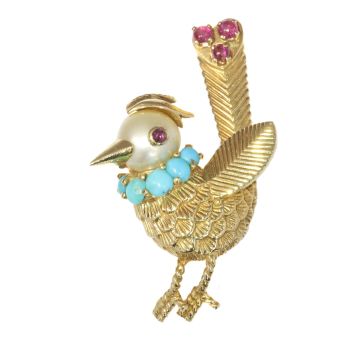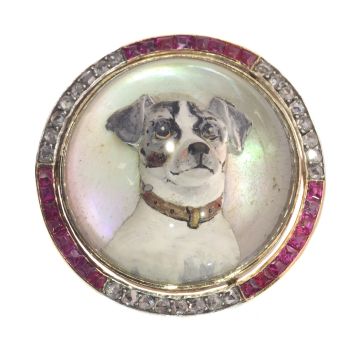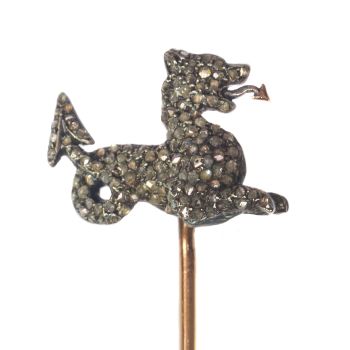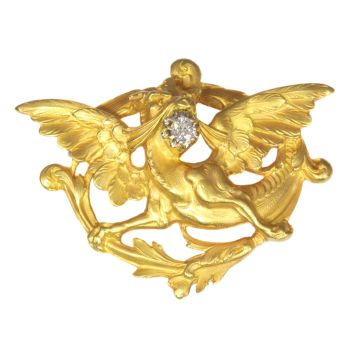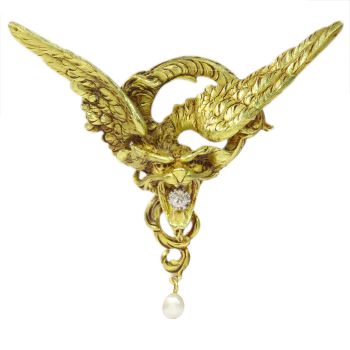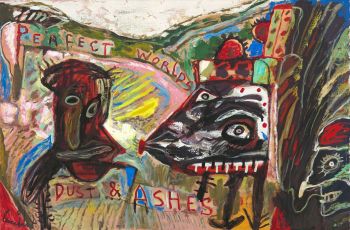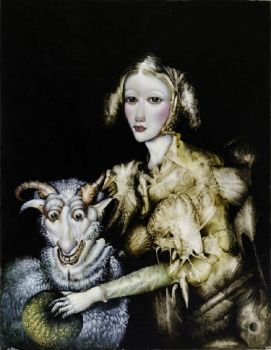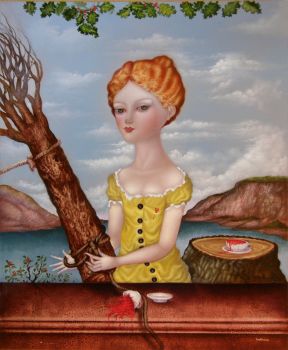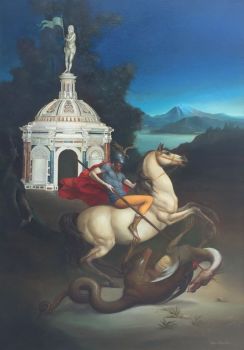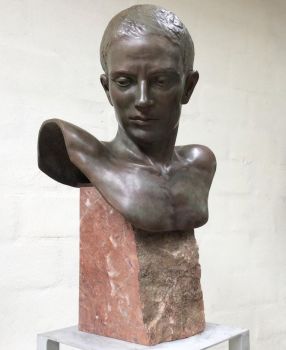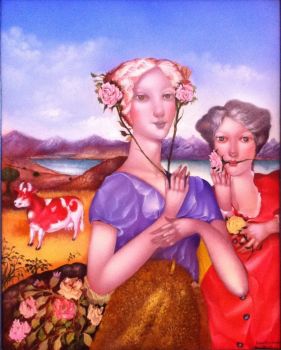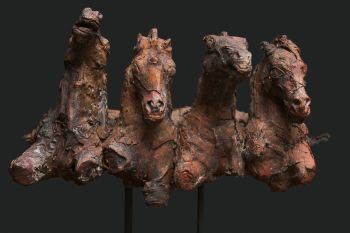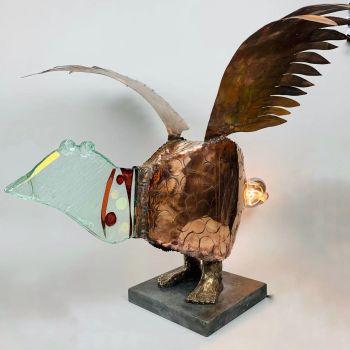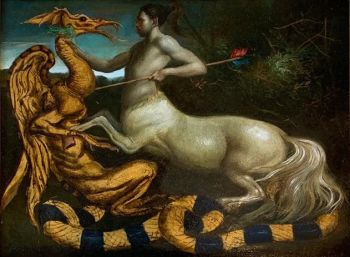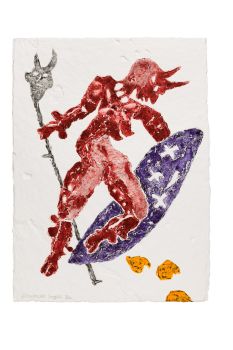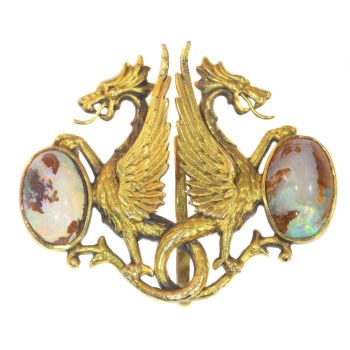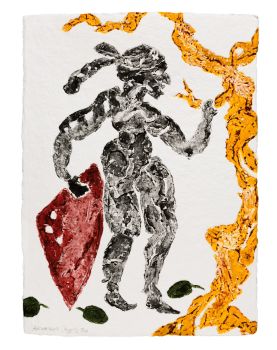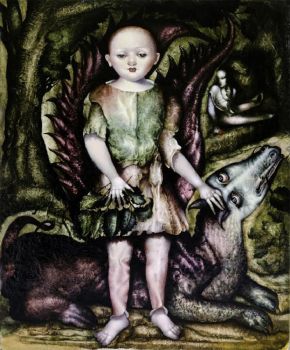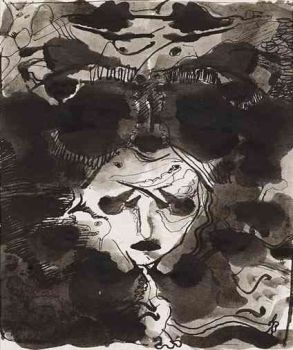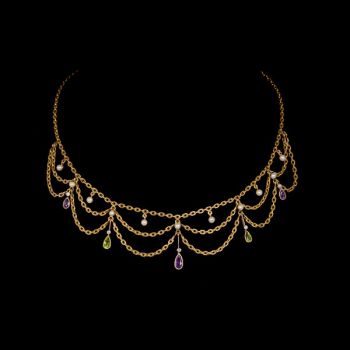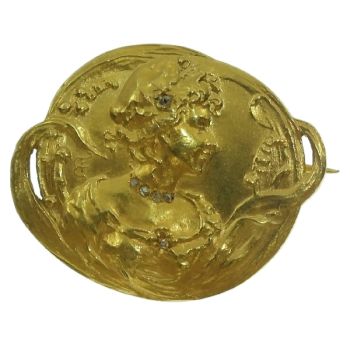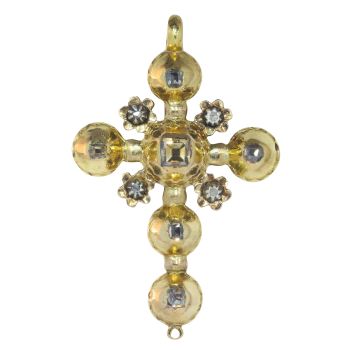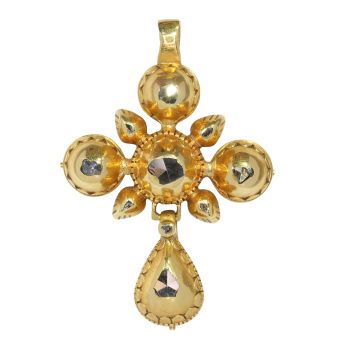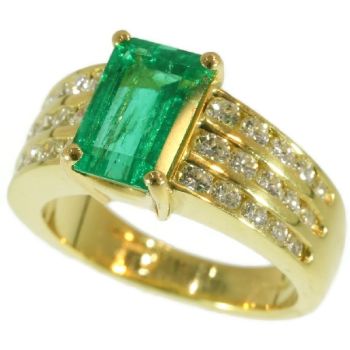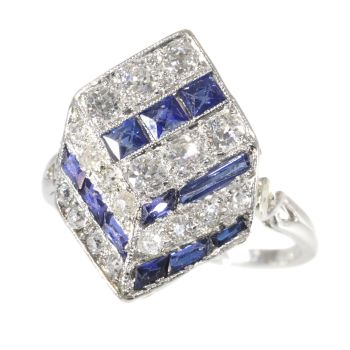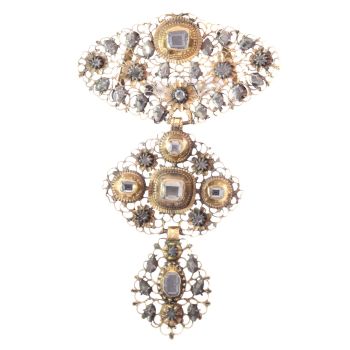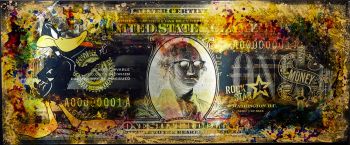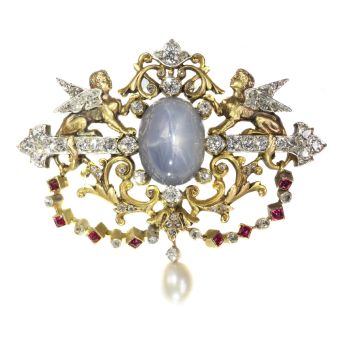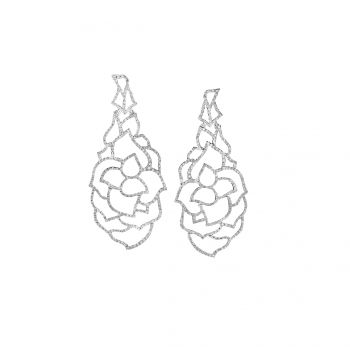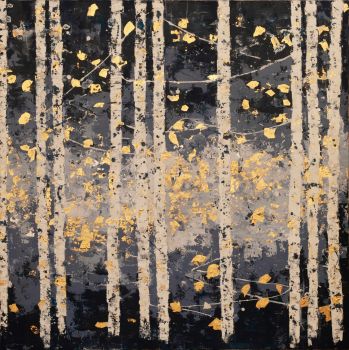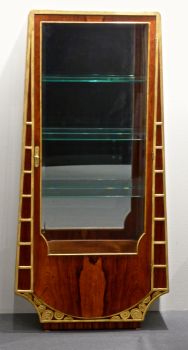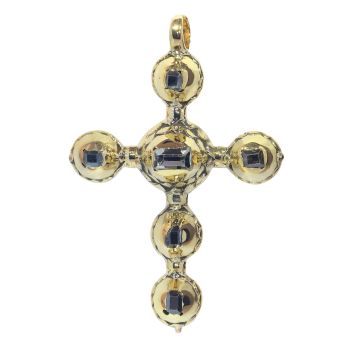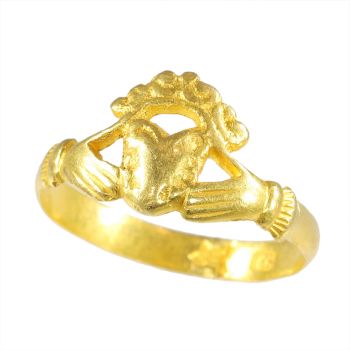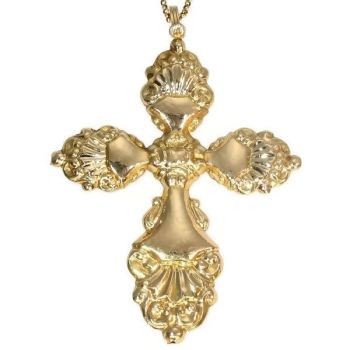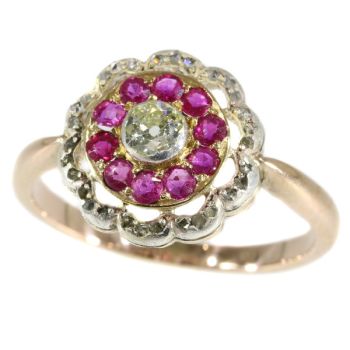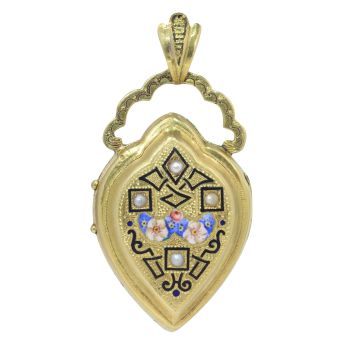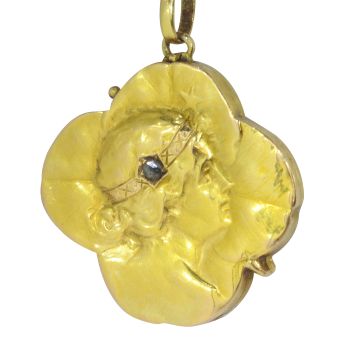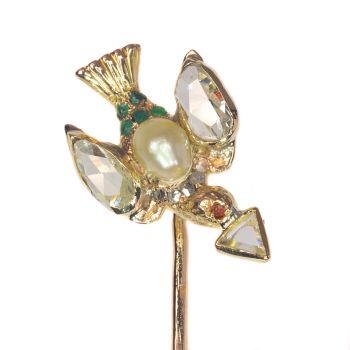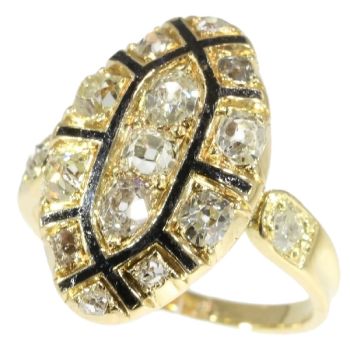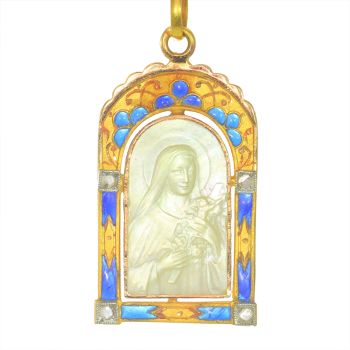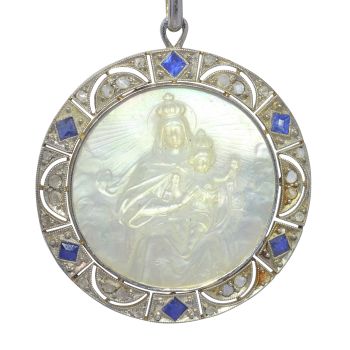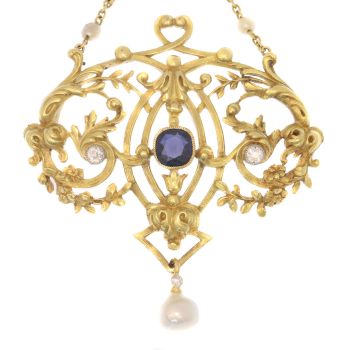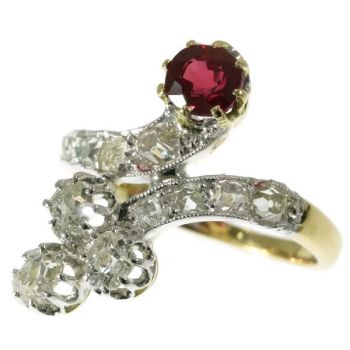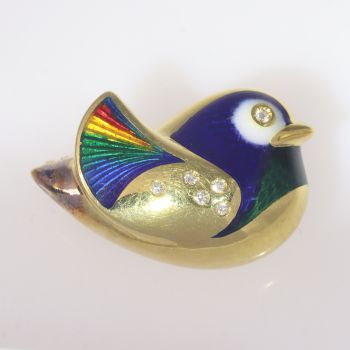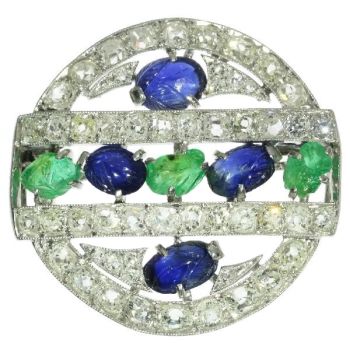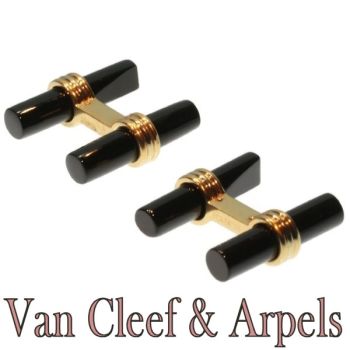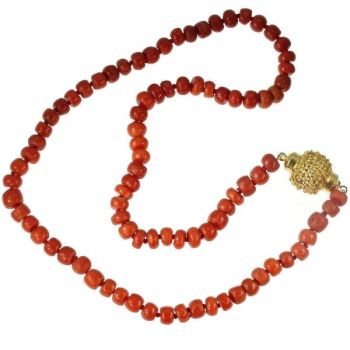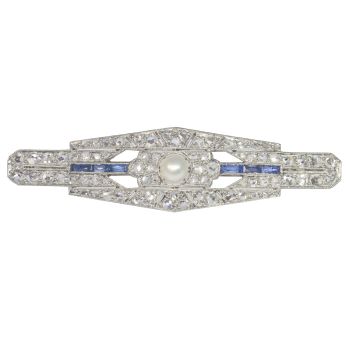Vintage antique 18K yellow gold griffin dragon brooch 1890
Onbekende Kunstenaar
Goud
€ 3.250
Adin Fine Antique Jewellery
- Over kunstwerk
Antique jewelry object group
brooch
Condition
very good condition
more info on our condition scale
Country of origin
unknown
Style
Late-Victorian - Victorian decorative arts refers to the style of decorative arts during the Victorian era. The Victorian era is known for its eclectic revival and interpretation of historic styles and the introduction of cross-cultural influences from the middle east and Asia in furniture, fittings, and Interior decoration.
Victorian design is widely viewed as having indulged in a regrettable excess of ornament. The Arts and Crafts movement, the aesthetic movement, Anglo-Japanese style, and Art Nouveau style have their beginnings in the late Victorian era.
See also: late-Victorian
more info on styles
Style specifics
Late Victorian / early Art Nouveau - The subject of this piece, although typical 19th Century, announces the coming of the Art Nouveau style.
Period
ca. 1890
Events & facts of this era, poetry of this era, fashion of this era.
Source of inspiration
Mythology
Theme
Griffin - The griffin, a strange and legendary creature, usually represented as being part eagle and part lion (and occasionally part serpent). As the lion was traditionally considered the king of the beasts and the eagle the king of the birds, thegriffin was thought to be an especially powerful and majestic creature. Griffins are normally known for guarding treasure. In antiquity it was a symbol of divine power and a guardian of the divine. Most contemporary illustrations give the griffinforelegs like an eagle's legs with talons, although in some older illustrations it has a lion's forelimbs; it generally has a lion's hindquarters. Its eagle's head is conventionally given prominent ears; these are sometimes described as the lion's ears,but are often elongated (more like a horse's), and are sometimes feathered. The griffin motif is found in sculpture of the ancient Babylonians, Assyrians, Persians, and Romans; in beast allegories of the early Christians; and in Gothic architecture ofthe late Middle Ages. The griffin remains common in heraldry, representing strength and vigilance.
Material
18K yellow gold (touchstone tested)
more info on precious metals
Precious stones
One pearl
Birthstones
Pearl is the birthstone (or month stone) for June.
more info on birthstones
Hallmarks
No trace.
more info on hallmarks
Dimensions
width 4,50 cm (1,77 inch)
see picture with a ruler in millimeters and inches
Weight
11,00 gram (7,07 dwt)
more info on ring sizes
Adin Reference Nº
22272-0064
Copyright photography
Adin, fine antique jewellery
Additional information
our latest acquisitions
jewelry glossary
wall of fame
visit us in Antwerp
subscribe to our mailinglist
- Over kunstenaar
Het kan voorkomen dat een kunstenaar of maker onbekend is.
Voor sommige werken is het niet te bepalen door wie het gemaakt is of dat het is gemaakt door (een groep) ambachtslieden. Voorbeelden zijn beelden uit de Oudheid, meubels, spiegels of handtekeningen die vaak niet duidelijk of leesbaar zijn. Maar ook sommige werken zijn helemaal niet gesigneerd.
Ook kunt u de volgende beschrijving vinden:
•"Toegeschreven aan …." waarschijnlijk een werk van de kunstenaar maar niet zeker of gedeeltelijk
•“Atelier van ….” of werkplaats van” een werk uitgevoerd in het atelier of atelier van de kunstenaar, eventueel onder zijn toezicht
•“Cirkel van ….” een werk uit de periode van de kunstenaar die zijn invloed laat zien, nauw verbonden met de kunstenaar maar niet noodzakelijkerwijs zijn leerling
•“Stijl van ….” of “Volger van ….” een werk uitgevoerd in de stijl van de kunstenaar, maar niet noodzakelijk door een leerling; kan eigentijds of bijna eigentijds zijn
•“Wijze van ….” een werk in de stijl van de kunstenaar maar van latere datum
•"Na …." een kopie (van welke datum dan ook) van een werk van de kunstenaar
•“Getekend…”, “Gedateerd….” of “Ingeschreven” dan is het werk gesigneerd/ gedateerd/ ingeschreven door de kunstenaar. De toevoeging van een vraagteken duidt op een element van twijfel
•"Met handtekening ...", "Met datum ...", "Met opschrift..." of “Draagt signatuur/datum/opschrift” dan is de handtekening/datum/opschrift toegevoegd door iemand anders dan de kunstenaar
Bent u geïnteresseerd om dit kunstwerk te kopen?
Artwork details
Related artworks
Onbekende Kunstenaar
Couple Wooden Ancestors Sculptures with Scarifications, Zela People, DRC. 1920 - 1930
Prijs op aanvraagSpectandum Gallery
1 - 4 / 12Onbekende Kunstenaar
Enchanting 1870s Vintage Fly Brooch: Victorian Elegance in Gold1870
€ 4.600Adin Fine Antique Jewellery
 Gecureerd door
Gecureerd doorDanny Bree
1 - 4 / 24- 1 - 4 / 24
- 1 - 4 / 24
Onbekende Kunstenaar
Enchanting 1870s Vintage Fly Brooch: Victorian Elegance in Gold1870
€ 4.600Adin Fine Antique Jewellery
 Gecureerd door
Gecureerd doorDanny Bree
1 - 4 / 24- 1 - 4 / 12

